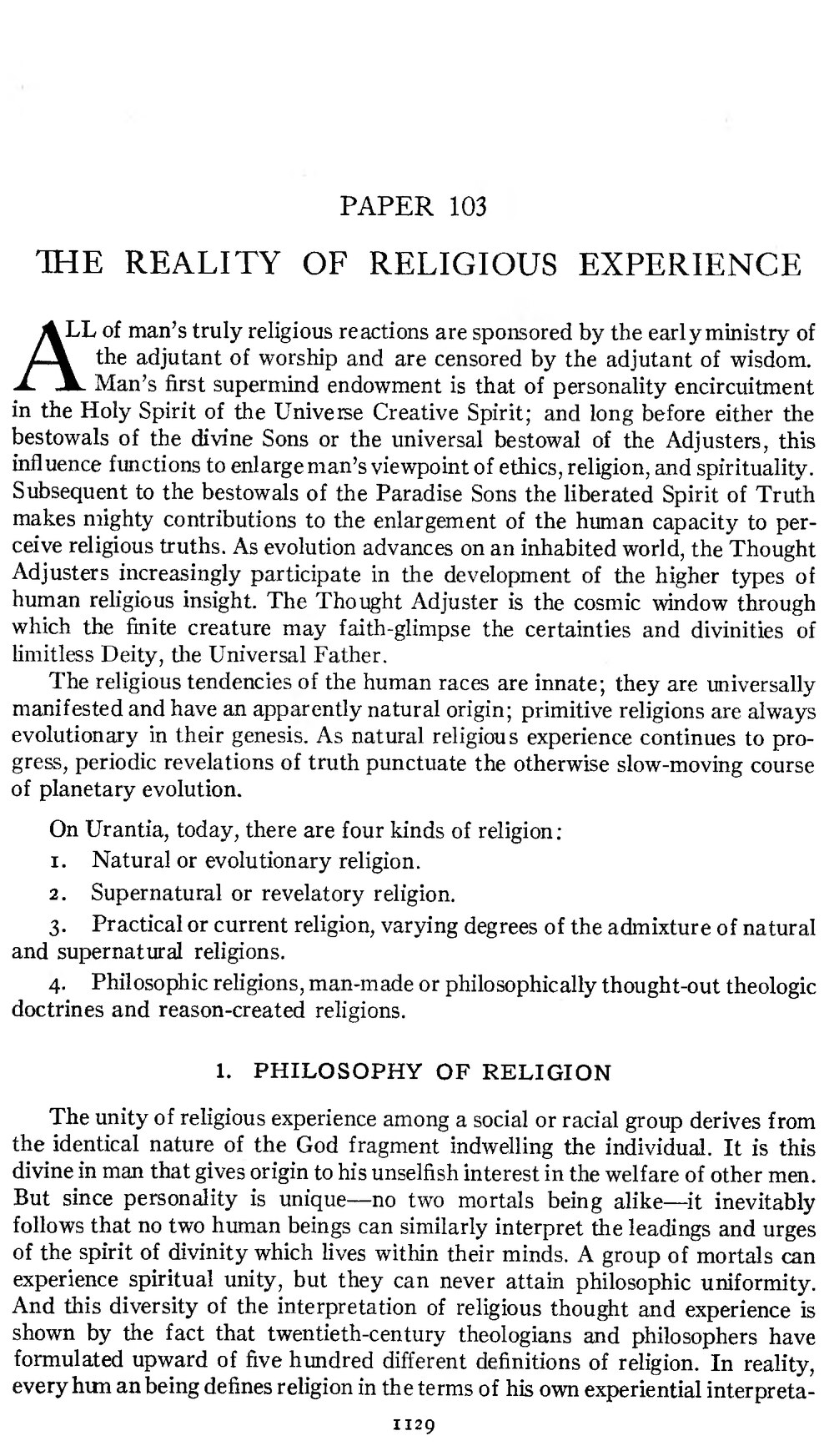PAPER 103
THE REALITY OF RELIGIOUS EXPERIENCE
ALL of man's truly religious reactions are sponsored by the early ministry of
the adjutant of worship and are censored by the adjutant of wisdom. Man's first supermind endowment is that of personality encircuitment in the Holy Spirit of the Universe Creative Spirit; and long before either the bestowals of the divine Sons or the universal bestowal of the Adjusters, this influence functions to enlarge man's viewpoint of ethics, religion, and spirituality. Subsequent to the bestowals of the Paradise Sons the liberated Spirit of Truth makes mighty contributions to the enlargement of the human capacity to perceive religious truths. As evolution advances on an inhabited world, the Thought Adjusters increasingly participate in the development of the higher types of human religious insight. The Thought Adjuster is the cosmic window through which the finite creature may faith-glimpse the certainties and divinities of limitless Deity, the Universal Father.
The religious tendencies of the human races are innate; they are universally manifested and have an apparently natural origin; primitive religions are always evolutionary in their genesis. As natural religious experience continues to progress, periodic revelations of truth punctuate the otherwise slow-moving course of planetary evolution.
On Urantia, today, there are four kinds of religion:
1. Natural or evolutionary religion.
2. Supernatural or revelatory religion.
3. Practical or current religion, varying degrees of the admixture of natural and supernatural religions.
4. Philosophic religions, man-made or philosophically thought-out theologic doctrines and reason-created religions.
The unity of religious experience among a social or racial group derives from the identical nature of the God fragment indwelling the individual. It is this divine in man that gives origin to his unselfish interest in the welfare of other men. But since personality is unique—no two mortals being alike—it inevitably follows that no two human beings can similarly interpret the leadings and urges of the spirit of divinity which lives within their minds. A group of mortals can experience spiritual unity, but they can never attain philosophic uniformity. And this diversity of the interpretation of religious thought and experience is shown by the fact that twentieth-century theologians and philosophers have formulated upward of five hundred different definitions of religion. In reality, every human being defines religion in the terms of his own experiential interpreta-
1129
